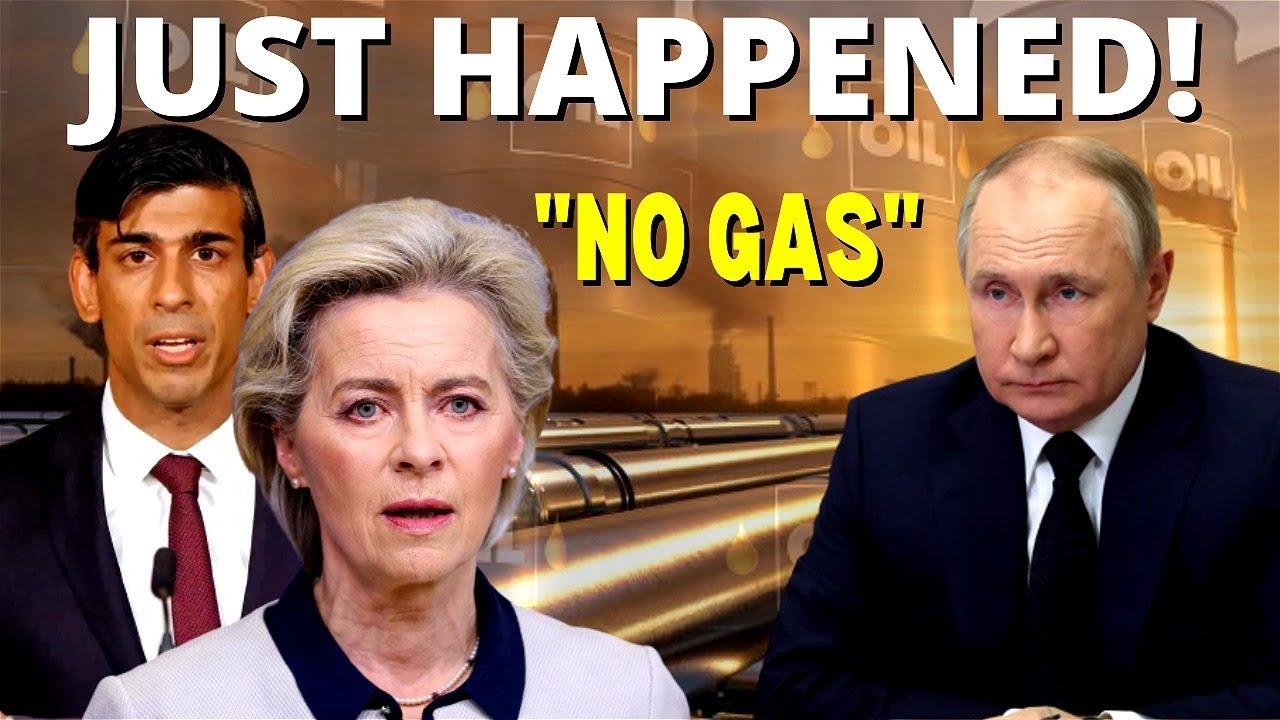
EU JUST WARNED Of Catastrophic Gas Shortages | Huge Threat To Europe Industries
Keep up to Date & Bypass the Big Tech Censorship
Get uncensored news and updates, subscribe to our daily FREE newsletter!
The United Kingdom faces an alarming challenge as gas shortages and skyrocketing energy prices wreak havoc on its economy. Recent developments in the energy market have sent shockwaves across the nation, leaving people scrambling for answers.
Picture this: a failed coup attempt by the notorious Wagner group in Russia raises concerns about supply disruption, sending gas prices to unprecedented heights. It’s a perfect storm, leaving the UK shaking on the edge of catastrophic energy shortages. The consequences?
Insane energy prices seem to be spiraling out of control. But what exactly led to this mess, and what does it mean for the average Brit?
| Recommended Books [ see all ] | ||||
|---|---|---|---|---|
 |  |  |  |
 |
The UK has been hit by a shocking surge in gas prices, reaching record-breaking levels that have left people stunned. The benchmark prices have soared to new highs, causing alarm across the nation. So, what exactly caused this drastic increase?
Well, it all started with the recent Russian coup attempt by the infamous Wagner group. This event sent shockwaves through the energy market, raising concerns about supply disruption. As a result, gas prices in the UK experienced a big spike, leaving everyone in disbelief.
These geopolitical events happening in faraway lands are now impacting the wallets of everyday people, and the consequences are no joke. It seems like the world of energy has been turned upside down, and the UK is feeling the effect of it.
You see, the United Kingdom heavily relies on imported gas, especially from its European neighbors. It’s like a lifeline that keeps our homes warm and our industries running smoothly. But here’s the catch: this dependency on gas from abroad also brings risks and vulnerabilities. UK’s gas supply chain is interconnected with Europe through pipelines.
This means that any disruptions or shortages on the continent can directly impact the UK. It’s like a domino effect – they feel the tremors if there’s a hiccup in the European gas market. So, when gas prices skyrocket, and supply becomes uncertain, it’s not just an issue for Europe but the UK.
Moreover, there have been consequences from the windfall tax imposed on oil and gas producers, which has resulted in reduced investment in the North Sea. The tax has raised the overall tax rate to 75%. And it has spooked operators and investors, leading to a decline in funding for exploration and development.
This reduction in investment can have severe implications for our energy supply. But it doesn’t stop there. The Labour Party, expected to win the next election, has pledged to stop issuing new oil and gas exploration licenses in the North Sea.
This further adds to the uncertainty and creates potential shortages down the line. With the future of oil and gas exploration in question, UK risks becoming even more reliant on imported energy. These policy decisions have wide consequences and can impact our energy security and affordability.
The past two years have seen unprecedented volatility in gas prices, with dramatic spikes and fall that have left many puzzled. Various factors have contributed to these wild swings. One key factor is the impact of weather conditions.
The unusually mild weather in recent times has played a role in shaping gas prices. Additionally, energy-saving campaigns have also influenced demand, leading to price fluctuations. These measures to reduce consumption have helped Europe navigate the winter without experiencing severe supply shortages.
However, it’s important to note that prolonged production shutdowns in Norway, one of the major gas suppliers to Europe, have caused recent price increases. This disruption in supply has created a ripple effect, pushing prices higher.
Furthermore, the potential consequences of gas shortages are far-reaching and could significantly impact various aspects of daily life. Energy supply disruptions could directly affect households, businesses, and industries, leading to many challenges.
The most immediate concern for consumers is likely higher energy bills. As gas prices soar, heating homes and powering appliances could burden many. Especially during the colder months, the lack of gas to keep homes warm raises genuine worries. Businesses and industries also heavily rely on a stable and affordable gas supply.
Shortages could hamper productivity and increase operational costs, potentially leading to financial difficulties.


